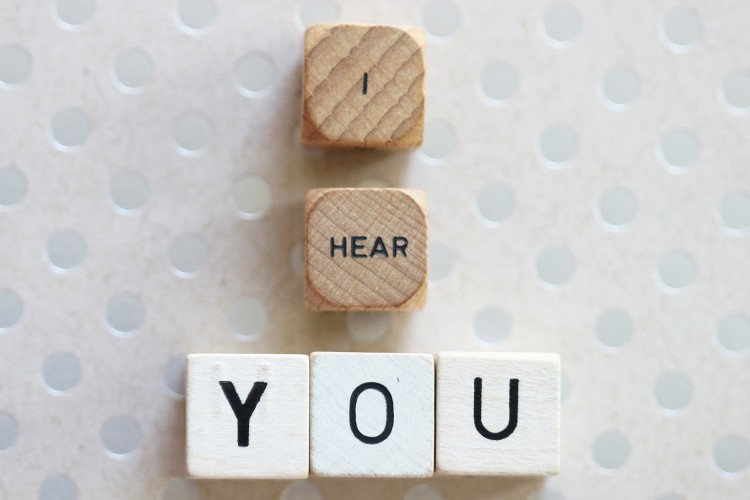It’s Not About You

The communication blunders that happen on an everyday basis are truly astounding. Ever step back and watch two people get themselves into an argument that could have been completely avoided with a few simple tweaks?
I’ve been thinking a lot about these communication blunders. For instance, how when a person is upset about something, and expresses it, how easy it is for others to extrapolate their feelings and extend them to other things. This causes incredible misunderstandings in relationships.
If I tell you a story about a dynamic that is happening with a friend of mine, and your response is to assume I’m really talking about you, it could cause unnecessary friction and create a story that isn’t even there.
A macro example is when we talk about problems with patriarchy, which affect people of all genders, and people assume we are saying men suck or all men are bad, when we are talking about a system. They personalize it, and have this knee jerk reaction of #NotAllMen, and the reaction eclipses the original issue that was brought forward. Now nothing productive can happen and no greater understanding is created. Game over.
This makes the people
speaking up and saying #MeToo feel unheard, unlistened to and dismissed. May not be the intention of the person who wrote the #NotAllMen post but that is the impact. Which brings me to the second communication blunder.
Stop right there. You may not want to hear this, but it doesn’t matter what your intention was. What matters is the impact.
Someone might be courageous enough to speak up and say, “Hey when you posted #NotAllMen or #AllLivesMatter I felt like what I was saying was dismissed or not acknowledged.”
And if someone can be so courageous to speak up we should support that, because it is hard to speak up when our feelings are hurt. And if we care, we can’t just focus on what our intention was because that is only half of the equation: we have to also care about the impact of what we said or did.
In personal relationships, telling someone you love who has just shared that they are having a feeling about something that your intention wasn’t to hurt them or to make them feel that way can end up feeling dismissive.
And what often happens is that someone might be sharing something they care about or that happened to them, and instead of listening and taking it in, the other person is sitting there saying “Have I done that? Are you saying I make you feel that way?” or they start over-explaining some past situation that is not what is being talked about! Not cool.
If you are sitting there taking in what your friend, lover, sister or brother is telling you about and are just applying it to yourself and getting defensive about what you haven’t done, you are not listening.This happens all the time.
 And then often a fight breaks out because one person was sharing something important and the other personalized it and got defensive and the other felt unheard or unseen and wasn’t talking about them, but now they have to defend themselves too and nobody is happy.
And then often a fight breaks out because one person was sharing something important and the other personalized it and got defensive and the other felt unheard or unseen and wasn’t talking about them, but now they have to defend themselves too and nobody is happy.
You following?
If you are having trouble, that’s good, because this is a common insidious example of how we miss each other, how we fail to check in about what a person might really mean, and how we make things about us when they are not.
This pushes us further apart, rather than building intimacy and understanding.
If I could offer some deep, profound communication advice today, it is:
 So many problems would be solved with this simple tweak. It’s even one of the four agreements: Don’t take anything personally.
So many problems would be solved with this simple tweak. It’s even one of the four agreements: Don’t take anything personally.
It’s like we can’t help ourselves. A common blunder.
If someone is sharing with you, it’s about them, it’s about their feelings and their experience. When you turn it around and make it about you by getting defensive or personalizing it, you take the focus off of what they are saying and you push them away.
Whether you do it on Twitter with a hashtag or with your partner or with your child, this does not ever serve your relationships and it sure doesn’t make you powerful. It makes it seem like the world revolves around you. And that is the common denominator here. All of these communication blunders make it about you and not them. Ah, it’s so simple! Ding ding ding!
To Recap Three Key Communication Tips:
1. Don’t extrapolate meaning to other things or situations.
2. Tend to the impact of what you have said and done, rather than focus on your intention.
3. Don’t take anything personally. It’s not about you.
Powerful communication is the foundation for powerful relationships.
I believe we can do better.


